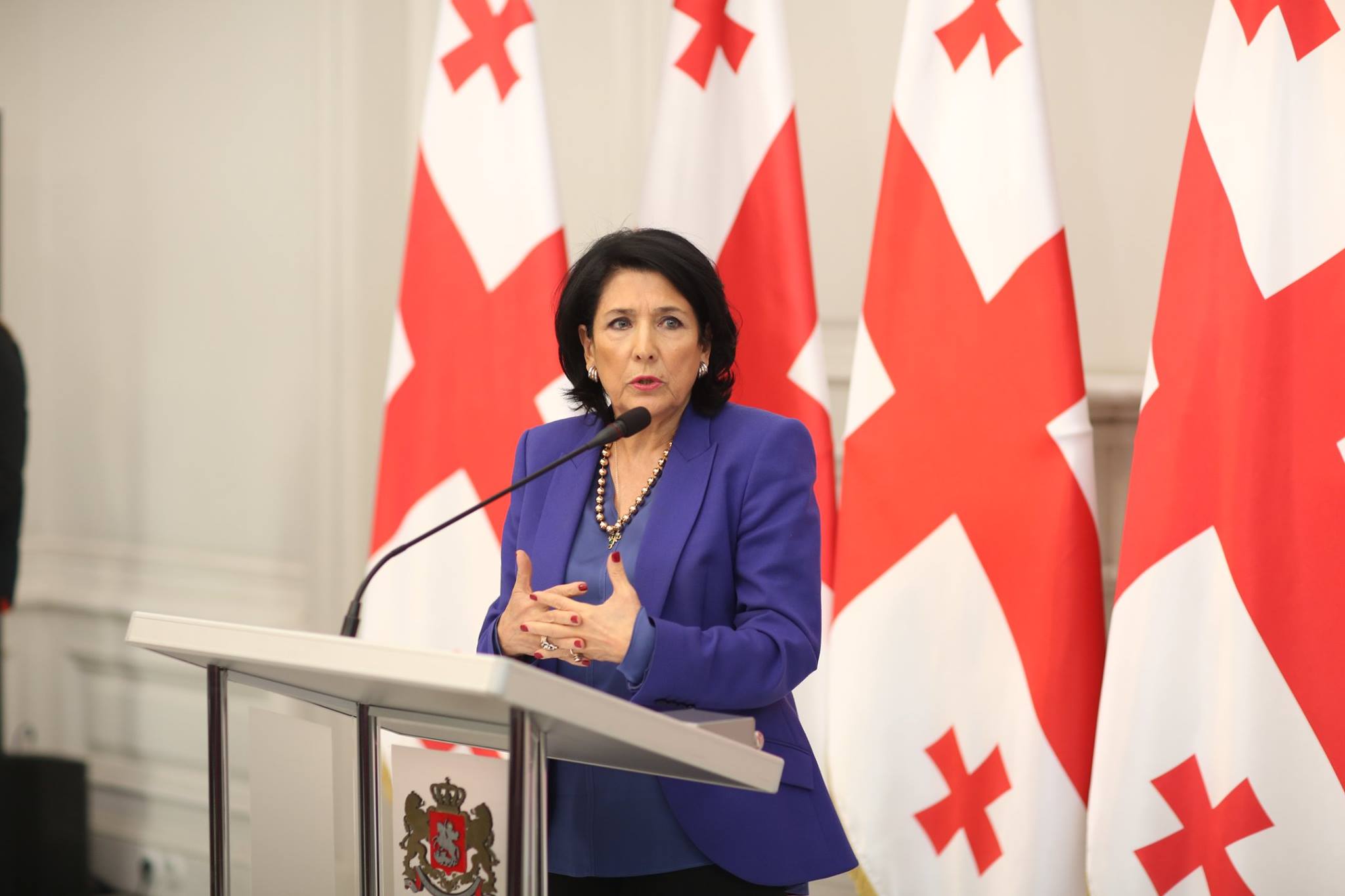This op-ed by Salome Zurabishvili, the President of Georgia has been originally published in Le Monde.
Europe is in crisis. And yet, Georgia has never been as determined and enthusiastic about its European future as it is now. While the citizens of the European Union (EU) will have to determine their vision of the European future in May elections, Georgian citizens have led the way. By electing me to the presidency of Georgia [November 28, 2018], the Georgians made their choice to go against the tide of fashionable Euro-skepticism. My electoral victory was the vindication of a campaign led against the background of the European flag, which revolved around this objective: the entry into Europe.
Georgia is a paradox: situated on the edge of Europe, it dreams of Europe while the Europeans doubt it.
Perhaps, Georgia does not measure the daily difficulties of European politics, the compromises, slow progress and these succession of productive crises that built the European edifice.
But in a way, the ability to keep its distance is precisely Georgia’s strength. Georgia observes Europe from the outside. A country bordering the Black Sea, wedged between Russia to the north, Turkey to the south and Iran to the east [directly bordering Armenia], more than any other European country we are able to compare alternative political models when we are not submitting to them. The judgment of the Georgian people is crystal clear: Georgians have been supporting EU membership with 80% for years, to the extent of enshrining the European perspective in the Constitution!
An apparent European identity
The European choice is easily made. Europe is synonymous with freedom: after seventy years under the Soviet totalitarian yoke and thirty years of democratic progress, our European aspiration is inseparable from the consolidation of liberal democracy.
Europe represents our common culture: the country of the Golden Fleece [told in a Greek myth of the quest of Jason helped by the Argonauts], the bulwark of Christendom since the fifth century, a cradle of the wine-making civilization, our European identity apparent.
Our values are those of Europe, among which the Georgian tolerance – which is marked by the warm reception of the Jews over the centuries without manifestation of anti-Semitism – and which we intend to inscribe as as Unesco intangible heritage list.
Above all, Europe allows for both progress and protection. The march towards Europe brings us concrete improvements, measurable for every citizen, in a country still burdened by its Soviet heritage: the opening of the European market offers new commercial opportunities, the participation in Erasmus programs trains our youth, the introduction of European regulations better protects our consumers from risks to health and safety.
The rapprochement with Europe is also a factor of protection: it is the French presidency of the European Union which, in 2008, stopped the Russian invasion which, without this diplomatic mobilization, could have ended up with the fall of the capital, Tbilisi; it was still Europe that has mobilized a stabilization mission to prevent Russia from continuing its creeping into our territory, 20% of which are still occupied by the Russian army.
And yet, Georgia is not a member of the EU. It runs up against the limits of enlargement. Since we want the European construction to succeed, we know that any new enlargement will have to be done with the full consent of the European peoples.
That is why we have to get out of the double trap the current enlargement policy has locked us into. It contributes to Euro-skepticism within Europe because it goes against the wish for tangible borders and cohesion. Conversely, it runs the risk of fueling disappointment and frustration outside the EU, in a country as infatuated with Europe as Georgia is.
“Welcome” initiative of President Macron
Brexit is also a crisis of enlargement that General de Gaulle had also experienced in his time. It reveals the inability for Europe to advance to 28 way it progressed to six.
The initiative taken by President Macron [in his 5 March address to European citizens] is salutary in that it opens the opportunity for a debate on what a re-founded Europe should look like. To be reborn, Europe must go beyond the logic of uniformity and allow the emergence of several complementary groupings within a larger Europe. To pull its weight against the continental states of the 21st century, Europe must embrace, not divide.
Tomorrow’s Europe will need us all: from the stronghold of parliamentary democracy in Great Britain to the cradle of tolerance that is small Georgia.
In this debate, Georgia wants to become a laboratory of the new Europe. Without demanding the status of candidate country tomorrow, we want to think about the creation of a new status that offers more Europe to Georgia and lays the foundations for a great Europe based on liberal democracy and our common humanistic values.
The celebration of the ten years of the Eastern Partnership in the Georgian port of Batumi will take place after the European elections and before the “conference for Europe” proposed by President Macron. Georgia intends to participate in the European Renaissance by contributing to the definition of Europe that protects, without excluding.
This post is also available in: ქართული Русский
